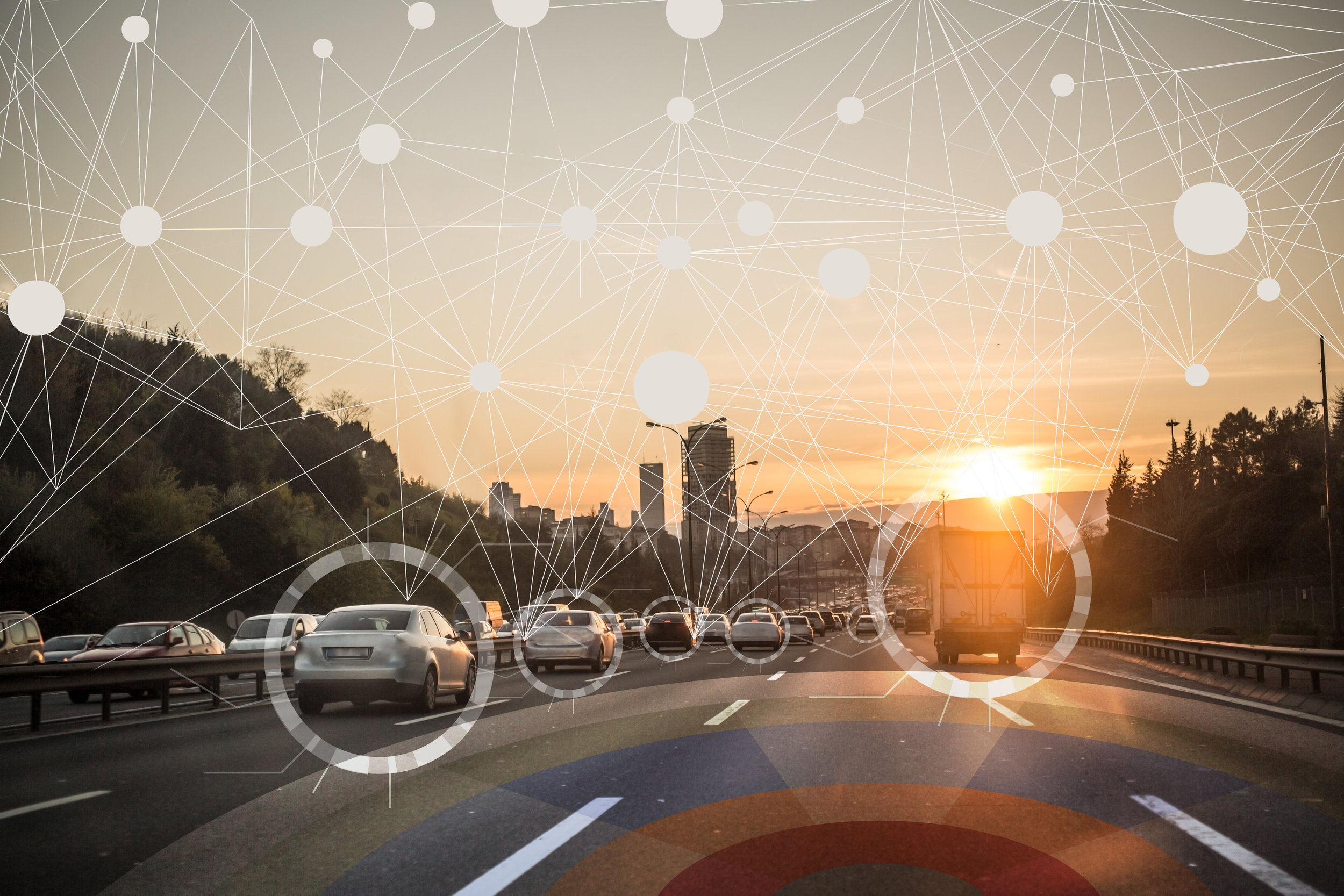Current projects
Professor Elliott currently leads international teams – working across Australia, New Zealand, Germany, Denmark, Poland, Finland, Ireland, the UK and Japan – investigating the social impact of digital technologies, robotics and artificial intelligence.
ARC Discovery Project (2018-2020): “Industry 4.0 Ecosystems”
“Industry 4.0 ecosystems: a comparative analysis of work-life transformation” investigates the development of workplace culture in advanced manufacturing by conceptualizing the impact of information and communication technologies on employment and mobility. The project will generate powerful understandings of how digital technology transforms social relations in the advanced manufacturing workplace. This will reveal the impacts of digital mobility, and potential work-life consequences.
'Virgin Voyage - Land Rover Celebrates Production of First New Discovery Sport' by Land Rover MENA (CC BY 2.0), via Wikimedia Commons
ARC Discovery Project (2016-2020): “Enhanced Humans, Robotics and the Future of Work”
The 'Enhanced Humans, Robotics and the Future of Work' Project explores the sociological impacts of the current seismic shifts in automation, robotics and AI and how demand is created for digital skills around mobility and mobile technology. Some of the topics that will be focused on in this research will include: what future workplaces will look like; how capital-intensive and labor-saving dimensions of robotics and AI transform work/life balance and underpin emergent mobile forms of employment; and how forms of physical mobility (such as travel and transport for employment) and digital mobility (such as e-work, e-commerce and e-services) are being developed within companies and organisations in response to the demands of technological change.
Toyota Foundation Research Grant (2017 – 2019): “Assessment of socially assistive robotics in elderly care”
The “Assessment of socially assistive robotics in elderly care” is a pioneering research project involving collaboration between UniSA researchersand Japanese institutions to deliver a comparative and especially policy-ready appraisal of the transformation of lifestyle change and aged care in Australia and Japan. The project involves cooperation with two leading Japanese universities, Keio University and Rissho University.
EU ERASMUS+ Jean Monnet Centre of Excellence Grant (2018 - 2021): Hawke EU Jean Monnet Centre of Excellence
The Hawke EU Jean Monnet Centre of Excellence at the University of South Australia (UniSA), is dedicated to the development of education, research and outreach programs aimed at promoting a deeper understanding of European Union integration, and especially EU-Australia relations. The Centre is co-funded by the Erasmus+ Programme of the European Union and the University of South Australia. The Hawke EU Jean Monnet Centre of Excellence focuses in particular on the digital revolution and the global consequences of Industry 4.0, artificial intelligence and accelerating automation.
The Centre will do this by: (1) promoting EU-Australia relations through public diplomacy initiatives, including novel public forums advancing EU integration studies; (2) conducting EU interdisciplinary research, sponsoring Division and graduate research on Europe and nurturing early career researchers; and (3) supporting education initiatives in European thought and methodologies across UniSA.
EU Erasmus+ Jean Monnet Network Grants (2018 - 2021): “Cooperative, Connected and Automated Mobility: EU and Australasian Innovations” (CCAMEU)
The Jean Monnet Network on “Cooperative, Connected and Automated Mobility: EU and Australasian Innovations” (CCAMEU) brings together a consortium of Universities across Australia, Germany, Denmark, Estonia, Japan and New Zealand to investigate the impacts of cooperative, connected and automated mobilities (CCAM), also known as connected cars or self-driving vehicles. CCAMs emerge as a direct result of the digital revolution and involve major opportunities. At the same time the speed with which digitally enabled mobility systems, especially CCAM, are being developed and deployed, along with the scale of potential positive and negative economic and social disruption, present EU policy makers – along with their state, regional local as well as global counterparts – with profound challenges. It is therefore vital to develop a comprehensive systemic overview and analysis of emergent CCAM, a sound understanding of their current and anticipated impacts upon urban planning and the mobile routines of everyday life and relationships, and a thorough assessment of EU and global policy and regulatory best practice.
The research in CCAMEU is organised around three dedicated research clusters:
The ‘Sustainable Mobilities Systems’ Research Cluster. Among other things this will explore the nature and scope of the disruptive impacts of CCAM on existing mobilities systems, along with the economic, social and cultural contexts in which these are embedded, and assess policy options and strategies for managing the transitions.
The ‘Smart and Liveable Cities’ Research Cluster which will gather information and build knowledge around the significance new CCAM systems hold for the vision and practice of urban planning and design, and for everyday life in cities.
European and 3rd Country perceptions of the leadership role of the EU in the field of CCAM: this addresses EU perceptions specifically through qualitative investigation into cultural predispositions rather than only quantitative summaries such as Eurobarometer.
Eu Erasmus+ Jean Monnet Project Grant (2017 – 2019): “Digital Technologies, Transformations and Skills: Robotics and EU Perceptions” (D3REU)
D3REU is a Jean Monnet Research Project awarded to the university of South Australia under the Erasmus+ Programme of the European Union. The project is lead by Hawke EU Centre Director, Professor Anthony Elliott, and his team.
The project focuses on perceptions of EU policy and investment in advancing digital technologies - specifically, robotics and artificial intelligence (AI) - and its impacts upon workplace change, educational retraining and new digital skills.





